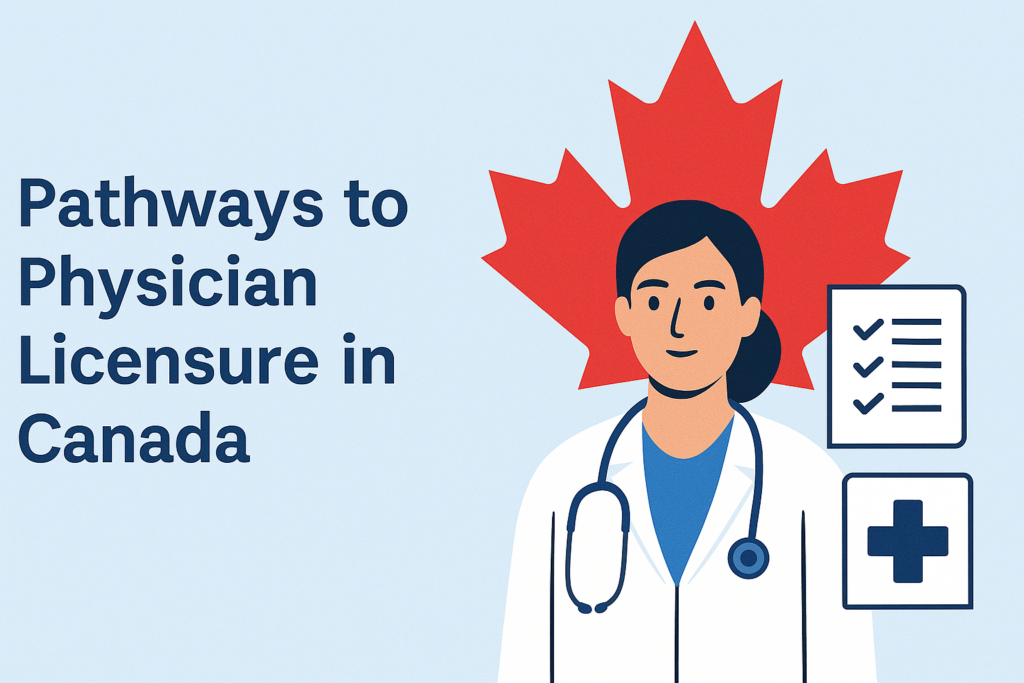A guide to clinical assistant, associate physician and Practice-Ready Assessment pathways across Canada for physician licensing. This guide document serves as a comprehensive guide for international medical graduates (IMGs) seeking to obtain physician licensure in Canada. It details various pathways, including Practice-Ready Assessment (PRA) programs, Associate Physician Licenses, and Clinical Assistant Licenses, providing insights into eligibility criteria, application processes, and province-specific requirements.
Practice-Ready Assessment (PRA) Programs: These programs offer an accelerated route for IMGs who have completed their residency and practiced independently abroad. Currently, nine provinces operate independent PRA programs that assess candidates’ readiness to practice in Canada.
Associate Physician Licenses: Certain provinces, such as British Columbia, offer Associate Physician positions for IMGs. These roles allow IMGs to work under supervision in structured team-based settings, providing a pathway to integrate into the Canadian healthcare system.
Clinical Assistant Licenses: Provinces like Nova Scotia have Clinical Assistant licenses, permitting IMGs to practice within approved physician extender programs. Eligibility includes recent clinical experience and meeting specific provincial criteria.
The guide emphasizes the importance of meeting English Language Proficiency requirements in English or French, verifying medical credentials through physiciansapply.ca, and passing the Medical Council of Canada Qualifying Examination Part 1 or MCCQE Part I. It also highlights the necessity of understanding the specific requirements of each province, as they can vary and are subject to change.
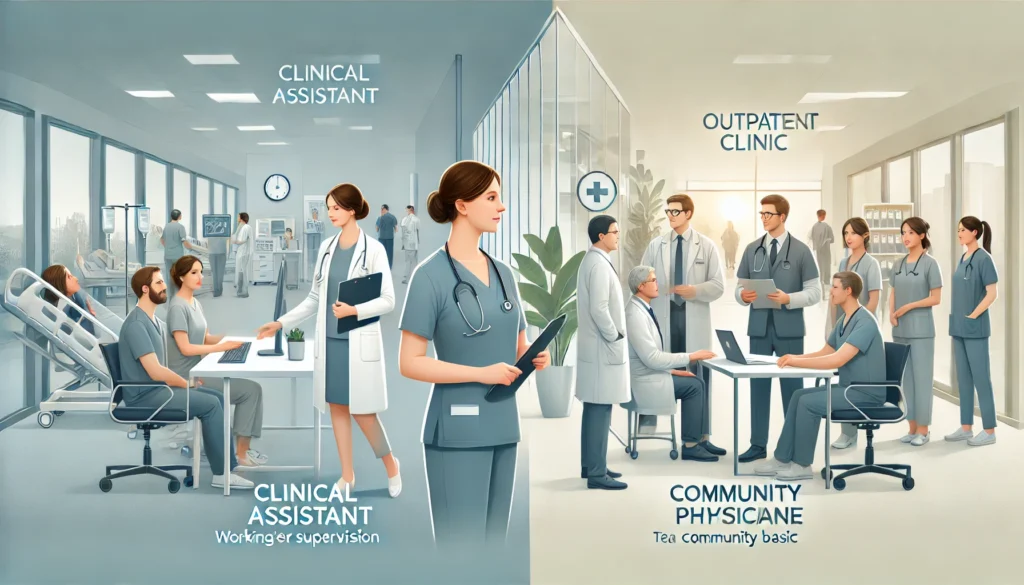
Eligibility and selection requirements can change at any time and without notice. Always confirm requirements directly with your preferred provincial or territorial program.
Language requirements
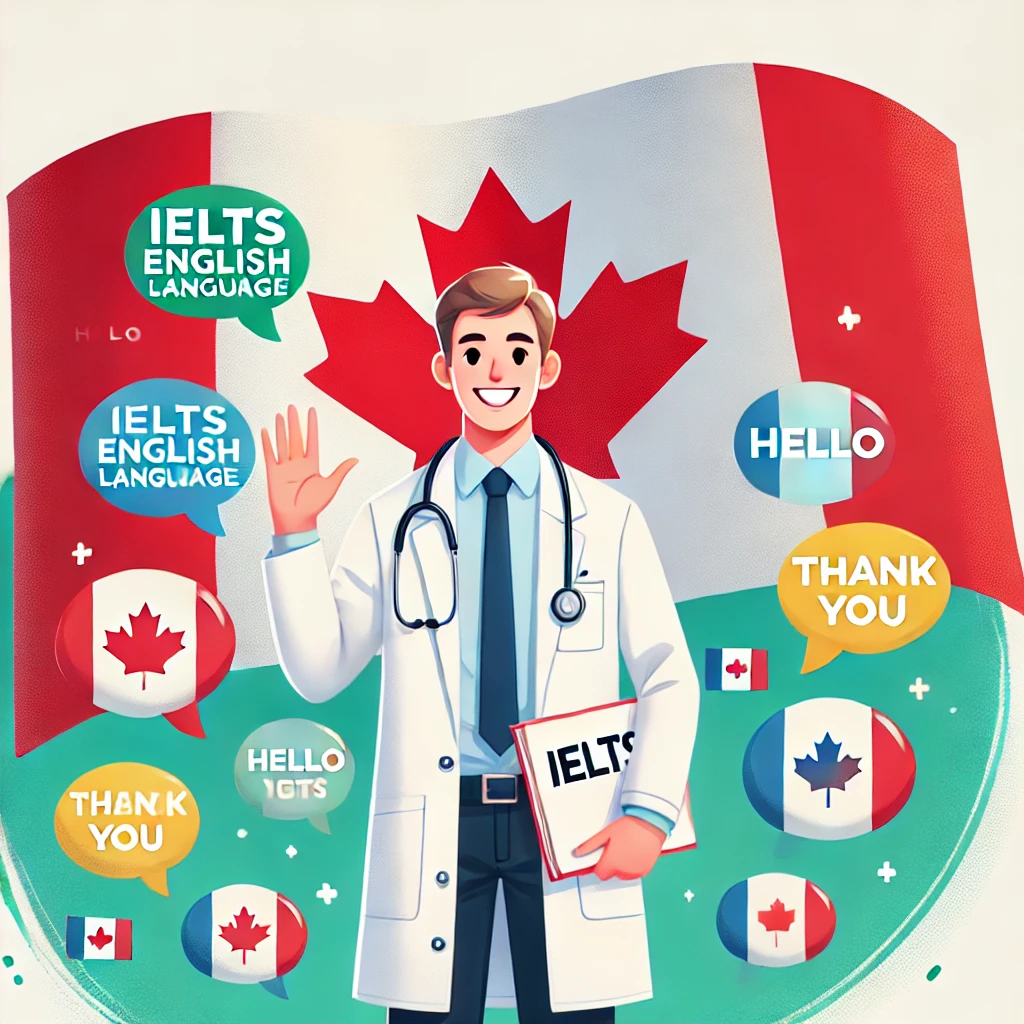
Every region requires you to be proficient in the language of practice: generally English or, in New Brunswick, either English or French, or, in Quebec, French. Proof of English or French language proficiency, current in the last 24 months, may be required, depending on the language in your home country. This is generally still required if you were trained in a country where English is not the first language (even if English was the language of instruction).
Generally, English proficiency is demonstrated by a pass result to an English language proficiency (ELP) test.
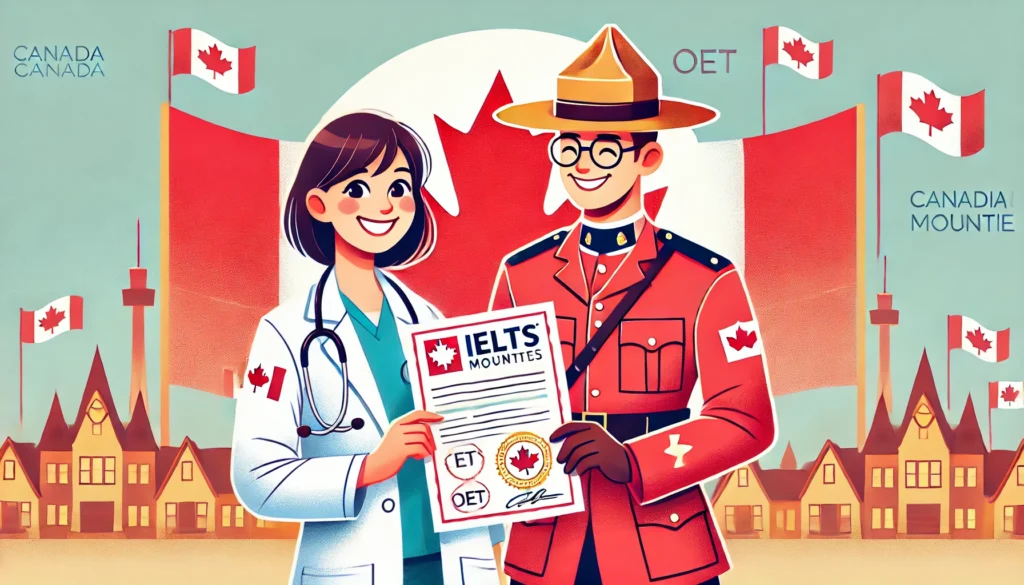
ELP options include:
• IELTS or Academic International English Language Testing System
• Occupational English Test (OET) Medicine version
• CELPIP General or as abbreviated Canadian English Language Proficiency Index Program General
French language proficiency is demonstrated with a pass result on the Office québécois de la langue française (OQLF) examination. All requirements can change. Always confirm requirements directly with your preferred provincial or territorial program. In the interest of continued improvement, if you notice inaccuracies or information that should be adapted, email [email protected].
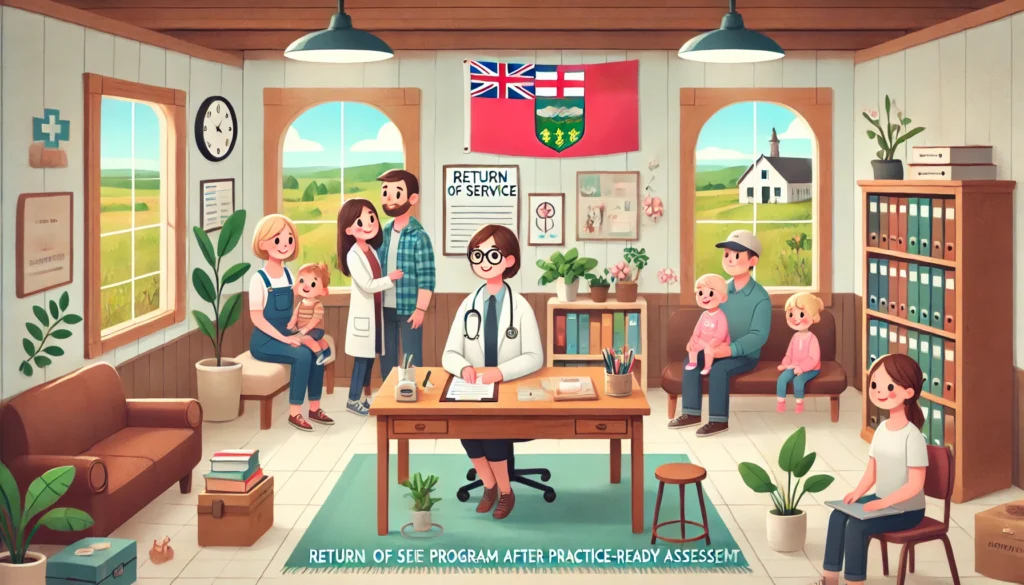
What will be covered?
The featured provinces are listed geographically, from west to east are covered below.
Clinical assistants and associate physicians
1. Associate physician licence in British Columbia
2. Associate physician licence in Alberta
3. Clinical assistant licence in Saskatchewan
4. Clinical assistant licence in Manitoba
5. Clinical assistant licence in New Brunswick
6. Clinical assistant licence in Nova Scotia
7. Associate physician licence in Prince Edward Island
8. Clinical assistant licence in Prince Edward Island
9. Clinical assistant licence in Newfoundland and Labrador
10. Comparison table: Clinical assistant and associate physician licences
Other programs
1. Clinical assistant assessment (CAA) program in Manitoba
2. Family physician training program (MLPIMG) in Manitoba
Practice-ready assessments for family physicians / general practitioners
1. Practice Ready Assessment – British Columbia (PRA-BC)
2. Practice Readiness Assessment Alberta (PRA-AB)
3. Saskatchewan International Physician Practice Assessment (SIPPA)
4. Practice-ready assessment in family medicine – Manitoba
5. Practice-ready assessment in family medicine – Ontario
6. Practice-ready assessment in family medicine – Quebec
7. Practice Ready Assessment New Brunswick (PRA-NB)
8. Nova Scotia Physician Assessment Centre of Excellence (NS PACE)
9. Practice-ready assessment in family medicine – Newfoundland and Labrador
10. Comparison table: Provincial PRA programs in family medicine
Practice-ready assessment for specialists
1. Practice Readiness Assessment (PRA-AB) for specialists in Alberta
2. Practice-ready assessment for specialists in Manitoba
3. Practice-ready assessment for specialists in Nova Scotia
Clinical assistants and associate physicians
1. Associate physician licence in British Columbia
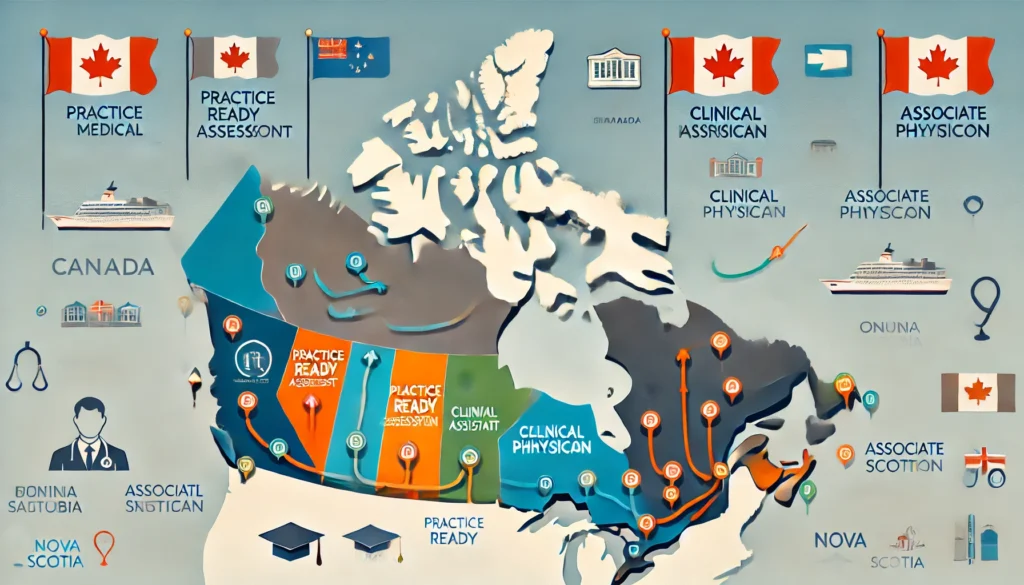
Type of licence
The associate physician (AP) class is a restricted licensure that permits a working physician with medical training acceptable to the CPSBC or College of Physicians and Surgeons of British Columbia and who is not eligible/ qualified for any other class of registration to practise under supervision in approved accredited structured team-based care.
Acute care category
• Setting: This category is designed for hospital-based settings, where health care is provided to patients with severe or urgent conditions.
• Scope of practice: Associate physicians in acute care typically work in emergency departments, intensive care units, or other hospital wards where they provide hands-on care to patients in critical condition. Their work is highly focused on managing acute, life- threatening conditions.
• Supervision: Since the work involves high-stakes medical situations, acute care associate physicians must operate under close supervision by a fully licensed physician, especially because they often deal with complex cases requiring immediate and precise medical intervention.
Primary care category
• Setting: This category applies to outpatient settings, where care is delivered in community clinics, family practices, or other non-hospital environments.
• Scope of practice: Associate physicians in primary care focus on managing general health concerns, chronic diseases, preventive care, and routine check-ups. They typically see a broad range of patients, from children to the elderly, addressing various non-emergency medical issues.
• Supervision: Supervision in primary care is also required, but the nature of the work being less acute and more focused on ongoing management of patient health means that it can be somewhat less intensive than acute care. Nevertheless, the associate physician is still required to consult with a supervising physician, especially for more complex cases.
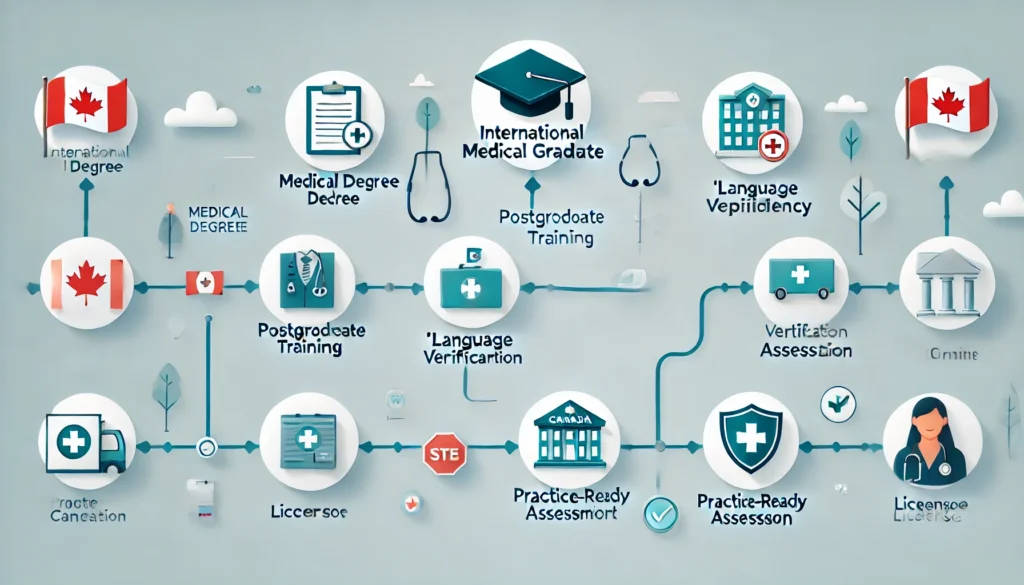
Key differences
• Type of care: Acute care deals with urgent, life-threatening conditions in a hospital, while primary care is about long-term, general health management in a community setting.
• Level of supervision: Associate physicians providing either type of care require supervision, but the provision of acute care involves more immediate, hands-on oversight because of the high-risk nature of the work.
• Training requirements: Acute care typically requires more intensive and specialized training in hospital settings, whereas primary care focuses on a broad range of less acute medical issues in outpatient settings.
Requirements
Associate physician registration may be granted to physicians who are not otherwise eligible for registration in the provisional or full class as determined by the registration committee, and who are practising under the direction and supervision of a current attending physician. An associate physician may not be the most responsible physician.
For the purposes of section 20(2) of the Health Professionals Act (British Columbia), to be granted registration in the associate physician class, an applicant must have:
• Have a medical school degree from a school listed in the WDMS or World Directory of Medical Schools.
• Submit with the application a sponsorship letter from a health authority, satisfactory to the registration committee, that:
o identifies the applicant’s sponsor
o describes how the applicant will engage in the practice of medicine
o notes that the applicant will be working under the direction and supervision of an AP/ attending physician (acute care class) OR notes that the applicant will be working in a community setting under the direction and supervision of an AP/ attending physician (primary care class).
• Have successfully completed two years of accredited medical or surgical specialist training prior to applying for registration (in either acute care class) OR one year of training as a general practitioner (primary care class).
• Have a pass result on the the MCCQE/ Medical Council of Canada Qualifying Examination (Website: MCCQE) Part I
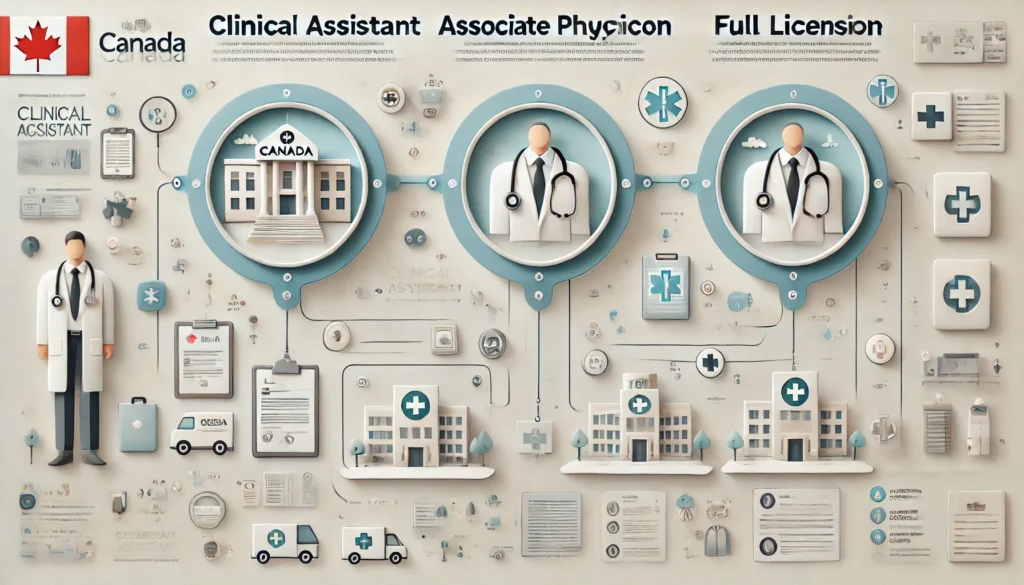
• Have Canadian citizenship, be a permanent resident/ PR, or be legally able to live and work in BC/ British Columbia.
Associate physicians must limit their practices to those specified in their sponsorship letter and as per any terms set out therein. Their registration could be cancelled should health authorities withdraw sponsorship under sections 2-25(2) or 2-26(2) of British Columbia’s Health Professionals Act.
NOTE: Health Match BC does not necessarily accept internship to count towards postgraduate training. It is the applicant’s sole responsibility to ensure that the requirements set forth by Health Match BC and CPSBC are met accordingly.
Application process
Prescreening assessment
1. In your email to Health Match BC:
a. Outline your interest in employment opportunities
b. Include a recent curriculum vitae (CV)
2. Health Match BC will work with eligible candidates to:
a. Apply for open positions as they are made available
b. Assist successful applicants with the submission of a registration package to CPSBC
3. Request for preliminary assessment by CPSBC:
Health Match BC will send the applicant’s application documents directly to CPSBC for evaluation, which must include an accredited associate physician program job description.
4. Eligibility review by CPSBC:
Executive director reviews applicant files to assess initial eligibility for registration and licensure under either of two associate physician classes: specialty/primary care AP or associate physician classes.
5. Waiting Time:
Applicants will receive a letter (6-8 weeks) six to eight weeks after CPSBC receives the application documentation from Health Match BC.
6. Meeting the requirements for pre-registration:
Pre-Registration Requirements, as Stated in Letter, Include either Sponsor Letter and or Contract of Supervision which confirm employment and program accreditation
7. Processing the application:
The file manager, if no additional follow-up is required, will submit the candidate file for a final review and approval.
8. Application package:
An application package will be emailed directly to the applicant by the file manager, who then completes and submits to CPSBC the completed form along with supporting documentation within six to eight weeks of submission. Afterward, our file manager reviews this completed application to make sure no further follow up steps are needed.
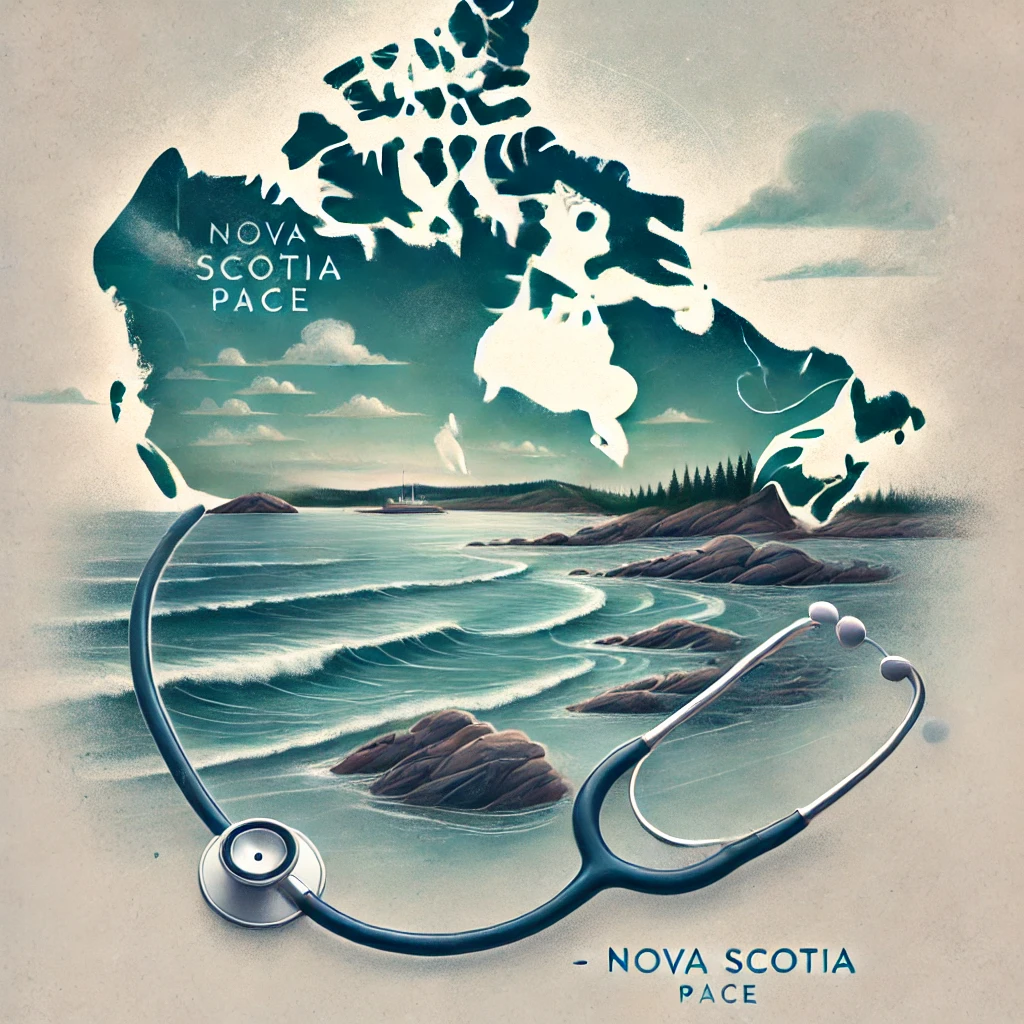
Registration and licensure
Once a file has been approved, a license is issued and registration and licensure as an associate physician depends upon these factors:
1. Submitting an Application for Registration Pack
2. Submitting written documentation that verifies that their associate physician applicant employment position exists within a health authority associate physician program approved by CPSBC
3. Sponsorship letter from the health authority that verifies employment within an accredited associate physician program 4. Compliance with requirements set out under the Health Professions Act and associated bylaws for registration/licensing requirements.
5. The health authority secures and upholds program accreditation
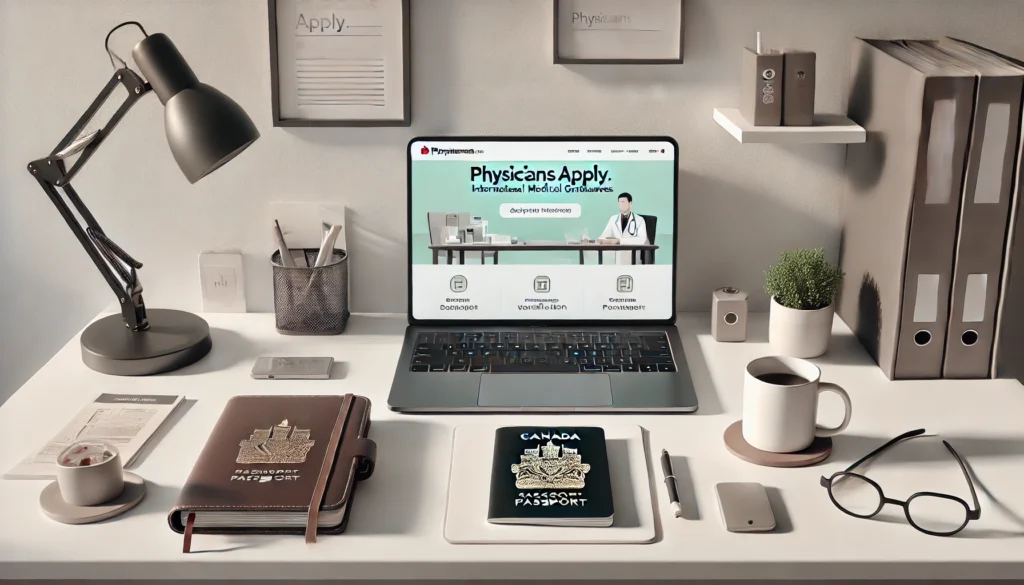
2. Associate physician licence in Alberta
Type of licence
Limited practice registration may be an option for physicians and osteopaths who do not yet meet our criteria for independent practice, yet have completed Alberta Health Services or Covenant Health’s Associate Physician orientation program successfully.
Physicians and osteopaths registered as Limited Practice Register physicians can offer limited medical services as Associate Physicians under supervision, for AHS or Covenant Health. To become one, however, one must meet specific licensure requirements.
Eligibility
Are You Eligible for Limited Practice Registration as an Associate Physician with AHS or Covenant Health?
If so, limited registration with either of them would likely apply as long as:
You completed AHS’ or Covenant Health’s Associate Physician orientation and assessment process successfully and Have ongoing support from them in remaining on a limited register
Requirements
-Medical degree obtained from one of the schools listed and present in the World Directory of Medical Schools.
-Postgraduate Training (minimum one year), To qualify as associate physicians, postgraduate training must include hospital-based clinical services offering direct patient care interaction in acute care environments; research activity or full-time administrative duties do not qualify.
-Successful results on Medical Council of Canada Qualifying Examination Part I.
-Criminal record checks or police certificates must be provided from every location you have practiced or trained for more than 90 days within the past five years, but only one such criminal record check needs to be submitted nationwide in Canada. While we do not mandate it specifically, vulnerable sector checks will also be accepted if included as part of your criminal record check submission.
-Evidence of currency of practice within three years; at least six months postgraduate training or independent practice must have taken place since completion of AHS training or Covenant Health residency * Letter from either AHS or Covenant Health in support of your application
-Successful Completion of Covenant Health’s Associate Physician Orientation Program.
APPLICATION PROCESS
1. Prescreening Process
To begin the prescreening process, complete the application form and submit the necessary documents (the details of the documents are mentioned above) to [email protected].
2. Post Prescreening Process
Successful applicants who pass prescreening will be awarded with an acknowledgement letter that allows them to begin applying for associate physician positions.

3. Clinical assistant licence in Saskatchewan
Type of licence
In Saskatchewan, clinical assistants are registered with the CPSS ab,breviated College of Physicians and Surgeons of Saskatchewan, under the policy for “Licensure of Physicians to Work in Limited Roles in Saskatchewan.” This policy applies to alternative forms of licensure for physicians who do not meet the normal criteria for independent registration. Such physicians will be restricted to working in tertiary hospitals under supervision.
Note: Saskatchewan Health Authority (SHA) will decide individually when opening a program for limited roles licensure. Physicians wishing to work in limited roles at tertiary care centres must undergo the same licensing procedure for independent practice licensure; otherwise CPSS refers to them as clinical assistants.
Requirements
Physicians seeking licensure for such positions shall have:
• A medical degree from a university listed in either the Foundation for Advancement of International Medical Education or Research or World Directory of Medical Schools directory.
• Current Advanced Cardiovascular Life Support (ACLS) or an equivalent program in resuscitation appropriate for the physician’s domain of practice.
• Pass result on the Medical Council of Canada Qualifying Examination (MCCQE) Part I.
If the physician has not attended a course in history taking and a course in physical examination skills, the SHA will be required to include training and assessment in history taking and physical examination skills as part of the orientation to the position and provide a report of their assessment of the physician’s skills and knowledge.
All such physicians should be required to attend the history taking course and the physical examination course offered by continuing professional learning division of Saskatchewan or other courses approved by the registrar at the first opportunity after licensure.
Assessments of physicians working in limited roles
Initially, the SHA will be required to provide information to the CPSS to demonstrate that the candidate has the necessary skills and knowledge. On the basis of this information, the CPSS can:
• Issue an educational license so the physician may participate in an assessment program before making their decision regarding granting or refusing them permission to practice restricted roles (Educ. Lic.)
• Grant provisional time-limited licence to practice restricted roles
• Refuse a licence
Reference: Licensure of Physicians to Work in Limited Roles | CPSS
4. Clinical assistant licence in Manitoba
In Manitoba, clinical assistants are health care professionals with a medical background who provide medical services under the supervision of a licensed physician.
Requirements
• Satisfactory completion of one of the following approved assessments:
o Registered Clinical Assistant Assessment Services provided by Rady Faculty of Health Sciences (RFHS) and Max Rady College of Medicine (MXCM) at University of Manitoba (UM) are now available.
o Pass result on the National Assessment Collaborative (NAC) Examination
o Satisfactory completion of the Licentiate of the Medical Council of Canada (LMCC)
• One or both of the following is required of physicians in Canada and the U.S.:
(o) Hold a degree from either an approved faculty of medicine, or hold an osteopathic medicine doctoral degree accredited by the American Osteopathic Association Commission on Osteopathic College Accreditation
– Must possess a graduate of an approved and accredited PA abbreviated as physician assistant or clinical assistant training program with limited field of practice restrictions and in good standing within Manitoba’s regulatory health professions.
Maintain the highest level of emergency medical attendant certification.
APPLICATION PROCESS
Once you meet all eligibility requirements, registration with the CPSM / College of Physicians & Surgeons of Manitoba can begin. Visit CPSM Registration for more information.
Reference: Clinical assistants and physician assistants | CPSM | April 2024
5. Clinical assistant licence in New Brunswick
The clinical assistant licence is an initiative to address health care workforce shortages. The program is a collaboration between the provincial government, the College of Physicians and Surgeons of New Brunswick (CPSNB), and the regional health authorities (Horizon Health Network and Vitalité Health Network).
The clinical assistant must be sponsored by a regional health authority for the purpose of employment within a CPSNB-approved clinical assistant program.
Requirements
• Have obtained a degree from a medical school outside Canada but listed in the World Directory of Medical Schools or be an internationally trained osteopathic physician who meets specific criteria
• Are eligible to obtain the Licentiate of the Medical Council of Canada designation or qualify as an acceptable alternative. (Visit the LMCC website for more details.)
• Must have engaged in clinical practice for at least 450 hours within the five years preceding application
• Must have successfully completed a training program or have a combination of training and practice experience relevant to the intended discipline of practice
• Be legally entitled to live and work in New Brunswick
• Have successfully completed:
o Two years of a postgraduate training/ PGT or internship program or housejob resulting in certification, recognition, and practice plus one year of independent practice experience
OR
o One year of a postgraduate training or internship program resulting in certification, plus
o Two years of independent practice experience
APPLICATION PROCESS
All applicants must submit a complete application for their medical registration (AMR) to the CPSNB via physiciansapply.ca.
1. CPSNB application fees of $450 are nonrefundable and do not guarantee eligibility. The MCC- AMR application fee is also nonrefundable.
2. As part of your AMR application process, carefully read through and respond to each question on the form. Any errors, discrepancies or omissions could delay review and may make your application ineligible for consideration.
3. Accumulate all required documents early, ensuring all credentials (medical degrees or specialty certifications) required are submitted for source verification via physiciansapply.ca in English or French for source checking purposes before sharing with CPSNB where applicable.
4. Once an application has been submitted, CPSNB evaluates eligibility of applicants before sending out an email decision regarding your request and next steps if applicable.
5. Additional documents may be requested after you are deemed eligible for licensure. This may include:
a. Identification documents
b. Proof of Canadian employment eligibility
c. Criminal record check
d. Language proficiency test results, if applicable
e. Certificate of professional conduct
f. Letters of reference
Reference: Licensure in New Brunswick | CPSNB | May 2024
6. Clinical assistant licence in Nova Scotia
Type of licence
A clinical assistant licence in Nova Scotia is a restricted licence issued by the College of Physicians
& Surgeons of Nova Scotia (CPSNS) to internationally trained physicians. This licence allows them to work under the supervision of a fully licensed physician within a hospital setting.
Requirements
* Meet the criteria set forth by Section 49 of the Medical Practitioners Regulations; and
* Have completed two years of PGT and one year of licensed, independent unsupervised practice experience
OR_
One year of PGT and two years of licensed independent practice; and
* Be licensed by the LMCC or have an acceptable alternative; and
Have practiced unsupervised medicine and acquired postgraduate training within five years, without supervision from anyone;
To remain current in clinical practice, physicians must have engaged in independent and unsupervised medical practice for at least 450 hours in the last five years leading up to their proposed practice start date in Nova Scotia as associate physicians. It must not have been more than five years since independent practice has taken place independently.
Exceptions
• Experience as an AP in another Canadian jurisdiction where such programs exist and are recognized by its medical regulatory body may be taken into consideration as evidence of independent, unsupervised practice for licensure purposes.
Verifiable postgraduate training may be considered instead of independent and unsupervised practice for currency determination at the discretion of CPSNS. The CPSNS must approve your credentials before you can accept a job offer.
Before CPSNS grants your clinical assistant license in Nova Scotia, proof of an offer of employment as a clinical assistant is necessary. Once approved for licensure and accepted as such by either Nova Scotia Health or IWK Health, an official clinical assistant license will be issued allowing them to practice medicine within Nova Scotia.
APPLICATION PROCESS
Step 1: Submit your credentials to be verified
a. Complete the application for medical registration and submit your credentials through MCC’s physiciansapply.ca.
b. Pay the fees. Fees are non-refundable.
For more information about licensing, contact CPSNS at 1-877-282-7767 or 902-422-5823, or email [email protected].
Step 2: CPSNS reviews your application
a. If you qualify, you will be emailed a request for documentation. b. If you do not qualify, you will receive an explanation.
For this you have 4-6 week time.
Step 3: CPSNS notifies you about your registration
a. CPSNS will send instructions and information regarding payment of applicable fees once qualified individuals qualify. Their goal is to issue licenses within 10 business days from when payment has been made.
b. If you do NOT qualify, CPSNS will explain why.
Step 4: Are You an Approved Candidate for Licensure to Practise Medicine in Nova Scotia (CPSNS)? Once approved for licensure by CPSNS, CPSNS issues your license to practice medicine here and sends out an email detailing all of the associated responsibilities for practicing medicine in Nova Scotia.
b. If your application doesn’t satisfy the criteria laid out in the Medical Act and Medical Practitionersonformement Regulations, your request will be forwarded on to the Registrar for consideration.
c. The Registrar may either: (i) approve and grant you a licence with or without conditions, with or without conditions attached;
(ii) deny your application with information about how to appeal this decision; iii (order a competency evaluation; and) provide other responses depending on how your case unfolds.
Refer your application to the Registration Committee (Referring Committee, or Committee,). Relevant Refs: Clinical Assistant License | CPSNS | April 2024.
7. Associate physician licence in Prince Edward Island
Observation: Prince Edward Island (PEI) is the only province that offers both clinical assistant and associate physician licences, with each having distinct roles and scopes of practice. Other provinces typically offer only one of these roles, which generally have similar responsibilities across jurisdictions. In British Columbia, there are two distinct types of associate physician licences, each with specific roles. Unlike other regions, PEI clearly differentiates between clinical assistant and associate physician licences, and the terms are not interchangeable.
PEI is currently the only province that issues a limited role licence without the requirement that an applicant
(1) be a Licentiate of the Medical Council of Canada (MCC),
(2) have a pass result on the National Assessment Collaborative (NAC) Examination, or
(3) have an acceptable alternative to the LMCC as per the corresponding provincial medical regulatory authority policies.
Type of licence
A new class of registration with the College of Physicians & Surgeons of PEI (CPSPEI) will allow foreign-trained physicians who have completed their postgraduate training to apply for a licence to practise in PEI as associate physicians.
Other changes were implemented to facilitate licensing more easily, including eliminating the requirement that an initial jurisdictional examination must take place prior to registration.
Common areas of practice for associate physicians include primary care, emergency medicine, long- term care, surgery, and obstetrics and gynecology, and other care settings on the basis of their training and experience.
Requirements
An applicant for associate physician registration shall:
• Have a medical degree from a medical school or faculty of medicine that is accredited at the time the degree is granted
• Have one of the following:
o Have successfully completed a postgraduate medical training program
OR
o Have qualifications, experience, and training that, in CPSPEI’s opinion, are substantially equivalent to the successful completion of a postgraduate medical training program.
• Demonstrate currency of professional knowledge and skills by having done one of the following within the five years immediately preceding the application:
o Successfully completed the training requirement; or have successfully completed a postgraduate medical training program; or have qualifications, experience, and training that, in CPSPEI’s opinion, are substantially equivalent to the successful completion of a postgraduate medical training program.
o Actively practised medicine in the province or in another jurisdiction recognized by CPSPEI to an extent that is acceptable to them
o Successfully completed a refresher program approved by the CPSPEI; and be certified by an organization, recognized by CPSPEI, governing family medicine in another jurisdiction.
For licensure as an AP/ associate physician,
individuals must have been engaged in clinical practice for at least 450 hours within the last five years.
A medical practitioner with associate registration shall not practise medicine except under the supervision of a designated supervisor.
Reference: Regulated Health Professions Act Medical Practitioners Regulations | CPSPEI | November 2024
8. Clinical assistant licence in Prince Edward Island
Observation: PEI is the only province that offers both clinical assistant and associate physician licences, with each having distinct roles and scopes of practice. Other provinces typically offer only one of these roles, which generally have similar responsibilities across jurisdictions. In British Columbia, there are two distinct types of associate physician licences, each with specific roles. Unlike other regions, PEI clearly differentiates between clinical assistant and associate physician licences, and the terms are not interchangeable.
The clinical assistant registration is intended to allow physicians with postgraduate medical training acceptable to the CPCPEI, who are not otherwise eligible for registration in PEI, to work under supervision in a team-based care setting to increase capacity and service delivery.
Requirements: An applicant for clinical assistant shall:
• Have a medical degree from a medical school or faculty of medicine that is accredited at the time the degree is granted
• Have successfully completed:
o The Medical Council of Canada Qualifying Examination (MCCQE) Part I; OR
o An examination administered in another jurisdiction that, in the opinion of the Council of CPSPEI, is substantially equivalent
• Training:
o Have successfully completed a postgraduate medical training program; OR
o Have qualifications, experience and training that, in the opinion of the Council of CPSPEI, are substantially equivalent to the successful completion of a postgraduate medical training program
o Demonstrate currency of professional knowledge and skills by having done one of the following within the five years immediately preceding the application:
– Actively practised medicine in the province or in another jurisdiction recognized by CPSPEI to an extent that is acceptable to CPSPEI
– Successfully completed a new refresher program approved by the Council of CPSPEI AND
– Be enrolled as a Licentiate of the Medical Council of Canada or hold other qualifications accepted by CPSPEI as acceptable alternatives.
Currency of practice
For licensure as clinical assistants, individuals must have been engaged in clinical practice for at least 450 hours within the last five years.
Training requirements
One of the following:
• Two (2) years of postgraduate training and one (1) year of licensed independent unsupervised practice experience
OR,
on the alternative route, one (1) year of PGT and two years of licensed independent unsupervised practice experience.
OR
• Qualifications, experience, and training that the Council of CPSPEI considers equivalent to successful completion of a postgraduate medical training program
The clinical assistant shall not practise medicine except under the supervision of a supervisor approved by the Council of CPSPEI with signed supervision agreements in place.
Reference: Regulated Health Professions Act Medical Practitioners Regulations | CPSPEI | November 2024
9. Clinical assistant licence in Newfoundland and Labrador
The program targets increasing access to health care services by bringing in qualified medical professionals who might not qualify for a full practice licence because of their background or training pathway.
Requirements
To be eligible for a clinical assistant licence in Newfoundland and Labrador, you must meet one of the following criteria:
• Hold a medical school degree from a faculty of medicine acceptable to the College of Physicians & Surgeons of Newfoundland and Labrador (CPSNL)
• Be a licensed or registered health care professional under an act of the Newfoundland and Labrador Legislature (e.g., nurse practitioner)
• Be certified as an emergency medical (EM) attendant, Level III
• Be a graduate of an accredited PA or clinical assistant training program acceptable to the CPSNL (currently not a common pathway)
You must have practised medicine independently for at least six months of the past four years to be eligible.
APPLICATION PROCESS
The CPSNL is responsible for issuing clinical assistant licences in Newfoundland and Labrador. Here is a general outline of the licensing process:
1. Pre-assessment:
Review the CPSNL’s Determine Your Eligibility flowcharts to get a preliminary sense of your eligibility basd on the basis of your qualifications.
2. Formal application:
If you meet the pre-assessment criteria, submit a formal application to the CPSNL. This will involve completing application forms, providing supporting documents (such as your degree, transcripts, and proof of experience) and paying applicable fees.
3. Assessment:
The CPSNL will assess your application to ensure you meet the qualification requirements. This might involve additional documentation verification and evaluations.
4. Licensing decision:
Upon successful assessment, the CPSNL will issue your clinical assistant licence.
Reference: Determine Your Eligibility | CPSNL | April 2024
10. Comparison table:
Clinical assistant and associate physician licences
Province Exams required Currency of practice required PGT Independent practice experience (IPE) required
British Columbia – associate physician primary care
MCCQE Part I* 960 hours in the last 3 years 1 year None
British Columbia – associate physician acute care
MCCQE Part I* 960 hours in the last 3 years 2 years None
Alberta
MCCQE Part I* 6 months in the last 3 years 1 year None
Saskatchewan
MCCQE Part I* and ACLS None None None
Manitoba
MCCQE Part I* or NAC Examination or CAA None None None
Nova Scotia
MCCQE Part I* Must have practised within the last 5 years 1 to 2 years If 1 year of PGT → 2 years of IPE
If 2 years of PGT → 1 year of IPE
New Brunswick
MCCQE Part I* 450 hours (approx. 3 months) in the last 5 years 1 to 2 years If 1 year of PGT → 2 years of IPE
If 2 years of PGT → 1 year of IPE
Newfoundland & Labrador
MCCQE Part I* 6 months in the last 4 years 1 to 2 years If < 2 years of PGT → 2 years of IPE
If 2 years of PGT → no IPE required
Prince Edward Island – associate physician
None 450 hours in the last 5 years Must have completed internship or other PGT None
Prince Edward Island –clinical assistant
MCCQE Part I* 450 hours in the last 5 years
At least 1 training program completed or equivalent qualification
If 2 years of PGT → 1 year of IPE
If 1 year of PGT → 2 years of IPE
* NOTE: Although the MCCQE Part I is listed as the required exam, you may also be required to have the designation of a Licentiate of the Medical Council of Canada (LMCC). Refer to each provincial medical regulatory authority for details. Additionally, each province has a list of what is considered an “acceptable alternative to the LMCC” and this varies across provinces.
Abbreviations: ACLS: Advanced Cardiovascular Life Support; AP: Associate Physician; CAA: Clinical Assistant Assessment Program; IPE: independent practice experience; MCCQE: Medical Council of Canada Qualifying Examination; PGT: postgraduate training.
Get information on how to get Irish Medical Council Registration for IMGs?
Other programs
1. Clinical assistant assessment (CAA) program in Manitoba
The clinical assistant assessment is one of the assessments that fulfills the requirements of the College of Physicians & Surgeons of Manitoba (CPSM) regarding entry to practice for clinical assistants. It is designed to determine competency in the basic knowledge, skills, and attributes required for practice as a clinical assistant in Manitoba.
Part I is a written examination that assesses your knowledge of basic medical sciences, clinical medicine, and the health care system in Manitoba.
Part 2 is an OSCE or objective structured clinical examination that assesses your clinical skills and your ability to apply your knowledge in a clinical setting.
Requirements
• A referral by the CPSM
• A degree in medicine from a faculty of medicine acceptable to CPSM
• Be a licensed or registered health care professional under an act of the Manitoba Legislature
• Be a certified as an emergency medical attendant, Level III OR
• Be a graduate of an accredited PA or clinical assistant training program acceptable to CPSM
APPLICATION PROCESS
Applicants must complete the required CPSM documentation and submit it to CPSM, who will then forward the application once eligibility is determined.
The CAA is tentatively scheduled twice per calendar year; however, sittings of the assessment are dependent on receiving sufficient paid registrations.
Reference: Clinician Assessment Programs | University of Manitoba | March 2024
2. Family physician training program (MLPIMG) in Manitoba
The MLPIMG is designed to enhance the current skills of internationally educated family physicians. MLPIMG physicians will work in rural setting and underserviced areas of Manitoba for return of service in deprived far flung areas and will work to obtain medical licensure as family physicians.
• Expected program duration: one year
• Program structure:
o Emergency medicine – two rotations (four weeks urban, four weeks rural)
o Family medicine – three rotations (12 weeks urban and rural)
o Gynecology – one rotation (four weeks)
o Obstetrics – one rotation (four weeks)
o Internal medicine – two rotations (eight weeks)
o Pediatrics (outpatient) – one rotation (four weeks)
o Pediatrics (ward) – one rotation (four weeks)
o Psychiatry – one rotation (four weeks)
o Vacation – one rotation (four weeks)
Following completion of the program, you will work for your sponsoring regional health authority employer for return of service. You will become eligible to apply for Provisional Registration – Family Practice Limited with the College of Physicians & Surgeons of Manitoba (CPSM). You will be assigned a practice supervisor for the duration of your provisional licensure.
Requirements
• Permanent resident (landed immigrant) or Canadian citizen
• Preference for residents of Manitoba
• Pass results on the National Assessment Collaborative (NAC) Examination
• One-year independent practice experience working as a physician in GP or General practice, family medicine, or primary care. Postgraduate training or PGT (internship/residency) does not count towards this requirement.
• Currently in practice: must not have been out of independent practice as a general/family practitioner for longer than five years. If out of practice for longer than five years, a minimum of 12 consecutive months of independent clinical practice is required.
Reference: International Medical Graduate Programs | University of Manitoba | March 2024
Practice-ready assessments for family physicians / general practitioners
1. Practice Ready Assessment – British Columbia (PRA-BC)
It is for internationally trained family physicians who have completed family medicine residencies outside of Canada.
PRA-BC is a competitive program, comprised of two parts:
• 1-week Centralized Orientation in Vancouver, BC
• 12-week Clinical Field Assessment (CFA) within the sponsoring health authority region.
PRA-BC conducts two intakes per year. Eligible applicants are referred to our participating health authorities for possible interview, selection, sponsorship, and participation in a PRA-BC intake. Candidates who successfully complete program components go on to fulfill a 3-year Return of Service in a BC community of need.
Sponsored candidates are supported by PRA-BC during the assessment with:
• Reimbursement for travel from Vancouver to their CFA site
• Single-occupancy accommodation for the duration of the Orientation and CFA
• Stipend payment during the Orientation and CFA
Immigration status in Canada is NOT required for Practice Ready Assessment in British Columbia
Applicants may apply from any country. Upon selection into a PRA-BC intake, overseas applicants are provided with guidance on applying for Canadian permanent residency through our sister program, Health Match BC.
Applicants must first meet pre-screening criteria based on eligibility requirements as set out by Practice Ready Assessment in British Columbia and the CPSBC, which include:
• Listed medical school in the World Directory of Medical Schools.
• Two years of postgraduate training leading to registration or recognition as a general or family physician
• Completion of seven core rotations:
o A minimum of four weeks of postgraduate training in internal/general medicine, general surgery, obstetrics/gynecology, pediatrics, psychiatry, and emergency medicine;
o A minimum of eight weeks of postgraduate training in family medicine.
• Completion of a minimum of two years of discipline-specific time in independent practice as a GP or family practitioner in an international jurisdiction.
• Academic credentials verification on physiciansapply.ca
• Currency in practice – a minimum of 960 hours of clinical practice as family physician in the preceding three years
• A current curriculum vitae (CV) that fully explains all activities, professional or otherwise
• A pass result on the Medical Council of Canada Qualifying Examination (MCCQE) Part I* and be a LMCC.
* Applicants may apply to PRA-BC prior to completing the MCCQE Part I. PRA-BC accepts applications year-round. There are no application deadlines.
Additional program requirements:
Applicants must achieve a pass standing on the Therapeutics Decision-Making (TDM) Examination prior to participating in a CFA.
Reference: Apply to PRA-BC | March 2025
2. Practice Readiness Assessment Alberta (PRA-AB)
A PRA for Alberta is the final step of an alternate path to independent practice for IMGs who don’t have complete Canadian credentials.
After an IMG registers with the College of Physicians and Surgeons of Alberta (CPSA), 2-part assessment to pass for their clinical competence to join CPSA’s temporary Provisional Register.
If a Canadian medical graduate will also sit in a portion of this assessment if fails a national exam, before joining the Provisional Register.
The PRA is composed of two parts that applicants must pass in succession before receiving an independent practice permit on the CPSA’s Provisional Register Conditional Practice.
Part A: Preliminary clinical assessment (PCA) – 12 weeks
Part B: Supervised practice assessment (SPA) – 12 weeks
Requirements
• Medical degree obtained from one of the schools listed and present in the World Directory of Medical Schools.
• A pass result on the Medical Council of Canada Qualifying Examination (MCCQE) Part I.
The completed USMLE is accepted as an equivalent to the MCCQE Part I. A partial USMLE is not accepted.
• Within the last three years, you need to have practised independently or been a part of a continuous PGT program for a minimum of one year in the discipline you want to enter in Alberta.
Non-Canadian fellowships or community services, public service or national services, and Medical Officer posts don’t fulfill this requirement.
• Postgraduate training/ PGT requirements for your discipline. If you are pursuing family medicine or GP, you need to have completed a family medicine PGT program (at least 24 months), including four months of community-based primary care and eight weeks in each of three of the following:
- Pediatrics,
- Obstetrics and gynecology,
- Surgery, and IM/Internal Medicine.
Applicants trained outside but approved jurisdictions must list each rotation of their completed university-affiliated family medicine program on their Review of Qualifications form.
Please note, If CPSA deems the applicant eligible, this same document must be verified via physiciansapply.ca.
• Pass the Therapeutics Decision-Making (TDM) Examination, if you got training outside of Canada as a family medicine physician. If your postgraduate training was in the USA, the UK, Ireland or Australia, you might not have to write the TDM Examination. We suggest you first apply to the CFPC for certification without examination. If CFPC recognize your training and other CPSA eligibility requirements, you can go straight to creating an account with physiciansapply.ca.
• As of October 1, 2020, A family medicine physician will need to pass the TDM Examination and get sponsorship within one year of receiving your CPSA eligibility letter. After that, your Registration Administrator will send you a letter outlining which documentation they need before you get registered for Provisional Register.
• A single nation-wide criminal record check or police certificate obtained through the Royal Canadian Mounted Police (RCMP) and not from third-party or online criminal record checks is required from all practised locations and/or trained in the last five years.
• Patient Relations education is required under the Health Professions Act (HPA) and mandatory for CPSA registration.
APPLICATION PROCESS
Steps to take before you start your PRA:
1. Submit a Review of Qualifications for Independent Practice
2. Apply for the TDM Examination (if you are applying for family medicine)
3. Secure sponsorship
4. Submit your supporting documents
5. Start the PRA
Reference: Apply for Independent Practice | CPSA March 2025
Registration Assessments | CPSA | March 2025
3. Saskatchewan International Physician Practice Assessment (SIPPA)
SIPPA is comprised of two parts,
1) Orientation to Family Practice in Saskatchewan and
2) The Clinical Field Assessment (CFA).
• There are typically three SIPPA iterations per calendar year
• Candidates who are selected for SIPPA are:
o Provided accommodation for the duration of the in-person orientation and assessment
o Provided stipend while participating in SIPPA
o Required to sign a three-year service agreement to provide service in a specific underserved or deprived rural community in Saskatchewan.
IMGs residing in Saskatchewan can apply to their government, a grant of upto $6,000 to have required SIPPA eligibility expenses reimbursed. This includes Medical Council of Canada (MCC) fees such as:
• National Assessment Collaboration (NAC) Examination
• Therapeutics Decision-Making (TDM) Examination
• Application for medical registration (AMR) AND
• English proficiency
• Review of qualifications of the College of Physicians and Surgeons of Saskatchewan (CPSS)
Only expenses incurred after December 1, 2022, are eligible for reimbursement. Register with the IMG Support Program to apply for the grant.
Requirements and procedure
• Medical degree obtained from one of the schools listed and present in the World Directory of Medical Schools.
• Provincial interview for suitability for being selected into SIPPA and family practice.
• Enter SIPPA – Centralized Orientation and CFA, abbreviated as Clinical Field Assessment.
• Postgraduate training with a generalist scope. May include rotations in family medicine, emergency medicine, IM, surgery, obs and gyne, pediatrics, and psychiatry. Other postgraduate training will be considered on a case-by-case basis.
• Successfully completed a postgraduate/internship/residency training program in family medicine, minimum of 12 months in duration. You require training or practice experience in the areas of general surgery, pediatrics, internal medicine, obs & gyne and psychiatry.
• Completed three years of practice as a family physician.
• Submit documents for source verification through the MCC’s physiciansapply.ca account
• Have a pass result on the MCCQE Part I
• Have a pass result on either the MCCQE Part II (2021 or before) or the NAC Examination
• Pass the TDM Examination
• Obtain a preliminary ruling from the CPSS.
• SIPPA accepts most responsible physician (MRP) Family Medicine, licensed Clinical Assistant/Associate Physician work, and relevant additional post-graduate training as currency of practice, and will consider GP-Specialist practice.
• College of Medicine-SIPPA interview for selection into SIPPA and a Saskatchewan Health
Authority family practice suitability sponsorship interview.
• Permanent residency is not a requirement, however it is your responsibility to obtain a work permit if not national.
Program structure and duration
• Orientation: This initial phase, lasting about five weeks, includes an introduction to the Canadian health care system
• Clinical field assessment: Typically lasts around 12 weeks. During this period, candidates are assessed on their clinical skills and competencies in a real-world health care setting in Saskatchewan
• Licensing and supervision: Candidates who successfully complete the Clinical Field Assessment will begin practice as a family physician in the community.
Reference: Introduction to SIPPA | University of Saskatchewan | March 2025
4. Practice-ready assessment in family medicine – Manitoba
The Practice Ready Assessment Manitoba – Family Practice (PRAMB-FP) program is designed for family physicians seeking accelerated licensure in Manitoba. Upon successful completion of the program, you will work as a family physician in rural as a prerequisite of return of service agreement, underserviced areas of Manitoba.
This assessment program lasts for three months. It consists of three components:
• Acute care in an emergency department setting (four weeks)
• Clinic 1 (four weeks)
• Clinic 2 (four weeks)
Requirements
• Residency status: Preference for established residents of Manitoba
• You must pass the National Assessment Collaboration (NAC) Examination
• Satisfactory completion of two years of postgraduate clinical training in family medicine (rotations in general medicine, general surgery, pediatrics, obstetrics and gynecology) that is accredited with a national postgraduate training authority at the time training was taken,
OR
• Satisfactory completion of one year of postgraduate clinical training in family medicine (rotations in general medicine, general surgery, pediatrics, and obstetrics and gynecology) and have a total of at least three years of practice experience in family medicine in the preceding five-year period.
Currency in practice:
• You must provide evidence of currency and continuation in practice.
• You must have a minimum of 3 years of independent clinical practice as a GP or family practitioner.
• This practice must have occurred in the last five years preceding the application deadline
• Applicants without GP experience or family practice training will not be considered
Credentials:
• Hold a medical degree from an approved and recognised faculty of medicine or a doctor of osteopathic medicine school degree in the United States accredited by the AAOC or abbreviated as American Osteopathic Association Commission on Osteopathic College Accreditation.
• Ensure one of the following are met:
o Confirmation by the CFPC or abbreviated as College of Family Physicians of Canada of eligibility for certification by:
– Successful completion of a family medicine program in Canada
– Successful completion of a family medicine program in an approved jurisdiction recognized by CFPC.
o Hold certification from Collège des médecins du Québec in family medicine.
o Hold certification from the American Board of Family Medicine
o Satisfactorily completed an approved family practice assessment
• Submit for source verification through the Medical Council of Canada (MCC)’s physiciansapply.ca, enabling document sharing for the College of Physicians & Surgeons of Manitoba (CPSM), the following:
o medical diploma
o family medicine postgraduate training document
o specialty certificate (if applicable)
APPLICATION PROCESS
1. Complete an application for medical registration through the physiciansapply.ca account.
a. AMR fees from the MCC and CPSM documentation fee to be paid.
b. Note: fees are non-refundable.
2. An application must be submitted to the University of Manitoba PRA-FM program.
3. Candidates who meet eligibility criteria are then ranked and the top candidates are nominated to sit the the Therapeutics Decision-Making (TDM) Examination.
4. Top ranked candidates who receive a pass on the TDM Examination are invited to sponsorship interviews.
5. For those who are offered an assessment, the practice locations and assessors are assigned in three different locations throughout Manitoba.
6. If the candidate is successful in their assessment, they will be issued a provisional certificate of practice (provisional license) and is expected to do a return of service in an underserviced
area of Manitoba.
Reference: Provisional registration – Family Practice Limited | CPSM | April 2025
5. Practice-ready assessment (PRO) in family medicine – Ontario
PRO offers a route to practise in the province for internationally trained family physicians.
It aligns with the MCC, National Assessment Collaboration (NAC) pan- Canadian standards for practice-ready assessments. Applications will be reviewed in two phases.
Eligibility and process
Phase 1: Application and screening
• Assess medical qualifications, postgraduate training, and independent practice experience
• Applicants are deemed eligible or ineligible
Phase 2: Verification and selection
• Eligible applicants submit evidence, and shortlisted candidates take the Therapeutics
Decision-Making (TDM) Examination, and undergo a multiple mini-interviews
• Applicants accepted into PRO apply for restricted certificates through the College of
Physicians and Surgeons of Ontario (CPSO)
• Selection for Phase 2 does not guarantee progression to Phase 3
Phase 3: Clinical field assessment
• Candidates complete a 12-week clinical assessment after program orientation
• A three-year return of service agreement with the Ontario Ministry of Health must be signed before starting the assessment
Return of service:
• A three-year return of service agreement with the Ministry of Health is required for those who successfully complete the clinical assessment
Program requirements:
• Canadian citizenship or permanent residency
• Medical degree obtained from one of the schools listed and present in the World Directory of Medical Schools.
• Must have a total of 48 months (four years) of training and practice experience as a general/ family physician at the time of PRO application
• Ability to demonstrate completion of the seven core rotations:
o Minimum of eight weeks of postgraduate training in family medicine or general practice
o Minimum of four weeks of PGT in emergency medicine, general surgery, internal medicine, gynae and obstetrics, pediatrics, and psychiatry.
Training in the required in seven rotations thatt must be from an approved university-affiliated program. Community experience or observerships do not count in PGT postgraduate training.
• If a candidate has a gap, the program may accept experience in lieu of training in the following way:
o One year of independent practice as a family physician or GP / general practitioner including the gap in a practice experience rotation will be considered as equivalent to four weeks of postgraduate training in that area for up to three rotation deficiencies.
and
o Attestation to prove practice experience in the area(s) of the PG rotation gap is required from a head physician or a chief administrator in a health care setting.
• Evidence of independent practice as a general/family physician
• A pass result on the Medical Council of Canada Qualifying Examination (MCCQE) Part I and be a LMCC abbreviated as Licentiate of the Medical Council of Canada.
• Passing the MCCQE Part II (2021 or before) or the NAC Examination
• Evidence of recent clinical practice:
960 hours in the last three years (25% of these hours can be from virtual care or having had specified licensed postgraduate education or practice in a Canadian jurisdiction in the past three years)
• Valid medical identification number for Canada (MINC) and other required documentation
Reference: Practice Ready Ontario | Touchstone Institute | March 2025
6. Practice-ready assessment in family medicine – Quebec
The restrictive permit is a specialized licence that restricts the professional acts authorized under it. Clinicians holding this permit may convert it to a regular permit upon meeting specific requirements. However, the permit can be revoked if the holder resigns from or is removed from the Roll of the Order, loses privileges in their health care institution, or ceases to practise.
Requirements:
• Medical degree obtained from one of the schools listed and present in the World Directory of Medical Schools.
• Practised competently in the area of medical expertise for which the restrictive permit application is being submitted for 12 months during the three years preceding the application
• A pass result on the Medical Council of Canada Qualifying Examination (MCCQE) Part I or the USMLE Step 2 CK
• Completed postgraduate training that is roughly equivalent to Quebec’s requirements for the specific specialty
• Hold a specialist’s certificate or equivalent in the relevant discipline
• Competent practice in the medical field for 12 months within the three years before the application
• Successfully completed an assessment period
• Participation in the ALDO-Québec educational activity before permit issuance
APPLICATION PROCESS
1. Pass one of the examinations from the requirements section above.
2. Obtain sponsorship with a health care institution through Recrutement Santé Québec (RSQ).
3. Submit an application for medical registration and the required documents (documents vary, see details at the reference link below).
4. Review of the complete file by the Committee on Admission to Practice (CAP) that meets every 6-8 weeks. A decision will be availale within 15 business days of the Committee’s meeting. If an application is successful, it will move to step 5.
5. Provide proof of French language proficiency.
6. Succeed an assessment period of 12 weeks (preceded by a week of observation).
7. Review of the complete file by the Committee on CAP, including result of assessment period.
The Committe makes the decision to authorize the issuance of the restrictive permit.
NOTE: Given the length of the process (9-18 months on average) and the requirement to maintain your clinical experience, we encourage you to keep practicing as you complete the steps.
Reference: Restrictive permit – Clinician – Practice Ready Assessment (PRA) | April 2025
7. Practice Ready Assessment New Brunswick (PRA-NB)
The PRA-NB program provides an alternate route to licensure for internationally trained physicians in family medicine offered through the CPS-New Brunswick abbreviated as College of Physicians and Surgeons of New Brunswick. PRA-NB is the only fully bilingual PRA program, providing candidates with the option to complete the assessment in either a fully English or French stream.
Requirements
• Medical degree obtained from one of the schools listed and present in the World Directory of Medical Schools.
• Should be a citizen of Canada or have PR and permanent resident permit or legally entitled to work in New Brunswick
• Training and practice experience:
o Option 1: Two years of PGT + one year of independent practice
o Option 2: One year of postgraduate training + two years of independent practice
• Core rotations: Have successfully completed seven core rotations during postgraduate training (or internship program) in the following fields:
o A minimum of eight weeks in family medicine or general practice, and
o A minimum of four weeks in each of: surgery, internal medicine, pediatrics, emergency medicine, obs/gynecology, and psychiatry
• Currency of practice: Minimum 450 hours of clinical practice in the last three years
• Be of good character: Proof of professional conduct, including certificates, references, criminal record check, etc.
• Exams: A pass result on the Medical Council of Canada Qualifying Examination (MCCQE) Part I, preference given to those who have also passed the National Assessment Collaboration (NAC) Examination
• PRA attempts: No more than one unsuccessful attempt in a Canadian PRA program in the last five years
APPLICATION PROCESS
Step 1: Application
• Continuous application process with a $450 non-refundable fee
• Submit application through physiciansapply.ca with all necessary documentation and fees
• Eligible candidates will be informed of their status and next steps
Step 2: Selection
• Suitability review: Applicant file’s will be reviewed and assessed against suitability criteria
to be selected to move forward to the interview process
• Interview: Virtual multiple mini interview (MMI) conducted to assess suitability for practising family medicine in New Brunswick
• Therapeutics Decision-Making (TDM) Examination: Required if not previously passed
• RHA matching process: Candidates selected after interview will pass a secondary interview with regional health authorities (RHA), who will recommend suitable candidates to PRA-NB
• Final selection: Based on examination results, suitability review, interview scores, and RHA matching
Step 3: Assessment
• Selected candidates will complete a program orientation and an Observership period, followed by a clinical field assessment. Candidates will spend two 6-week periods under the supervision of experienced family physician assessors. These assessors will observe,
evaluate and provide feedback on the candidates’ clinical and non-clinical skills relevant to family medicine.
Step 4: Return of service
• Candidates who successfully complete the clinical field assessment will be required to enter into a 3 year agreement with the Department of Health. Return of service communities will be designated according to emerging needs within the Regional Health Authority Organizations.
Reference: Selection Process Overview (PRA-NB) | CPSNB | September 2024
8. Nova Scotia Physician Assessment Centre of Excellence (NS PACE)
PACE offers a unique pathway to independent licensure in office-based primary care; combining an in-depth orientation to the Canadian health-care system (the Welcome Collaborative) with an assessment program hosted in a primary care clinic operated by PACE. It is a centralized model with all of the assessors and candidates working from the PACE Clinic. The care provided to the patients attached to the PACE Clinic is provided by the candidates, overseen by the assessors. Through a competency-based approach, PACE supports rolling entry into the program and individualized assessment durations (approximately 12 weeks, with a maximum duration of 20 weeks).
Requirements
Eligibility will only be assessed at times when openings are anticipated to be available at PACE.
• Medical degree obtained from one of the schools listed and present in the World Directory of Medical Schools.
• Successful completion of an internship or postgraduate training program in family medicine/general practice that is a minimum of 2 years in duration resulting in certification and recognition and finally practice in family medicine or general practice.
• Currency of clinical practice or training in family medicine/general practice as defined by:
o Completion of a minimum of two years of internship or post-graduate training in family medicine/general practice within the last five years, or
o A minimum of 450 clinical hours of independent practice in family medicine/general practice within the last five years. Administrative practice does not satisfy this requirement.
Prior to beginning the PACE Assessment Program, the candidate must sign a contract with PACE, a letter of offer from Nova Scotia Health, and a Return of Service Agreement from the Nova Scotia Department of Health and Wellness. The candidate must also hold medical liability protection coverage with the Canadian Medical Protective Association.
Selected physicians may only commence the assessment upon providing proof of legal authority to work in Canada (such as citizenship, work permit, or permanent residency).
APPLICATION PROCESS
While there will be not be a broad call for applications in 2025, PACE continues to work on reviewing the eligibility of candidates already identified and brought forward by the Department of Health and Wellness, PACE and the Office of Healthcare Professionals Recruitment.
In 2026 when PACE is fully up and running, there will be a broad call for applications for physicians interested in the PACE assessment program. When the call for applications opens in 2026, physicians can then apply and are asked to contact the College at [email protected].
Reference: Overview of PACE Assessment Program | March 2025
Eligibility and Selection Criteria for Referral to PACE Assessment Program | March 2025
9. Practice-ready assessment in family medicine – Newfoundland and Labrador
Practice Ready Assessment of Newfoundland and Labrador (PRA-NL) is a twelve-week clinical field assessment (CFA) during which a candidate is temporarily placed on the Education Register of the CPSNL, and is assessed for practice readiness under a provisional medical licence in family medicine in Newfoundland and Labrador.
• Before applying to PRA-NL, candidates must obtain a letter from CPSNL confirming eligibility for a provisional licence in family medicine (this requires a pass result on the the Medical Council of Canada Qualifying Examination (MCCQE) Part I or acceptable alternative)
• All required documentation, including exam scores, must be submitted and verified via physiciansapply.ca at the time of application
• Proceeding through one phase does not guarantee progression to the next or selection for the clinical field assessment (CFA)
Requirements
• Must have a valid letter from CPSNL verifying eligibility for a provisional licence in family medicine
• Pass result on the MCCQE Part II (2021 or before) OR the National Assessment Collaboration (NAC) Examination
• No more than one prior unsuccessful attempts in Canadian PRA programs.
• Two years of postgraduate training
Additional qualifications considered:
• Postgraduate training: Focused specifically on family medicine
• Canadian clinical work experience: clinical assistant or associate physician licence
• Clinical certifications: Up-to-date certifications such as
- Basic Life Support (BLS)
- Advanced Cardiovascular Life Support (ACLS)
- Advanced Trauma Life Support (ATLS), and
- Pediatric Advance Life Support (PALS)
• Consistent practice experience: Continuous practice as the most responsible physician in family medicine, especially in rural or remote emergency settings
Screening and selection process: Phase 1: Preliminary assessment
• A pass result on the Therapeutics Decision-Making (TDM) Examination is required for all applicants
Phase 2: Selection process
• Selection interview conducted virtually; applicants are responsible for associated costs
• Academic committee review: Reviews application, interview results, and clinical practice history
• Final selection: If recommended, confirmation of candidate’s commitment to move forward
with the CFA and signing of Candidate Agreement
• PRA-NL forwards the candidate’s curriculum vitae (CV) to Newfoundland and Labrador Health Services (NLHS) for sponsorship for the 12-week CFA
Phare 3: Candidate orientation
• Mandatory completion of online continuing professional development (CPD) modules and mandatory attendance of virtual program orientation prior to CFA start date.
• NLHS site specific orientation prior to CFA start date.
Phase 4: 12-week CFA:
• Conducted in the candidate’s NLHS zone of sponsorship with direct and indirect supervision
• Assessors evaluate patient care performance using PRA-NL’s assessment tools
Candidate responsibilities:
• Documentation: Complete all documentation required by PRA-NL, CPSNL, and NLHS
• Licensure continuation: Ensure ongoing eligibility with CPSNL
• Insurance: Provide proof of Canadian Medical Protective Association coverage
• Orientation: Complete PRA-NL candidate orientation requirements
• Costs: NLHS may cover the Candidate CFA fees. The Return of Service (ROS) is negotiated by NLHS with the candidate, outside of Memorial University, Faculty of Medicine
NOTE: No guarantee of licensure.
Passing the 12-week CFA does not guarantee the applicant’s ability to meet the CPSNL’s requirements for full licensure in Newfoundland and Labrador or elsewhere in Canada
Reference: PRA-NL | Memorial University | April 2025
10. Comparison table:
Provincial PRA programs in family medicine
PROV. MCCQE Part I NAC Exam. TDM Exam. IRCC GAP PGT IPE
BC Yes No Yes No 960 hours in last 3 years 2 years 2 years
AB Yes No Yes No 1 year in last 3 years 2 years 2 years
SK Yes Yes Yes Work permit at minimum 3 months in last 3 years 1 year 3 years
MB No Yes Yes No, preference for residents of MB 3 years within
5 years immediately preceding the application deadline 1 to 2 years If less than 2 years of PGT → 3 years of IPE
If 2 years of PGT → no IPE required
ON Yes Yes Yes Yes 960 hours in last 3 years (720 hours in-person
min.); licensed CA time may break gap 1 to 2 years If 1 year of PGT → 3 years of IPE, If 2 years of PGT → 2 years of IPE
QC Yes No N/A Not mentioned. Must be proficient in French 1 year in last 3 years 2 years 1 year
NB Yes Suggested but not required Yes Yes 450 hours in last 3 years 1 to 2 years If 1 year of PGT → 2 years of IPE, If 2 years of PGT → 1 year of IPE
NS No No No Work permit at minimum 450 hours in last 5 years 2 years 450 hours in the last 5 years
NL Yes Yes Yes N/A 450 hours in last 3 years 1 to 2 years If less than 2 years of PGT → 2 years of IPE, If 2 years of PGT → no IPE required
Abbreviations:
Provinces: AB: Alberta; BC: British Columbia; MB: Manitoba; NB: New Brunswick; NL: Newfoundland and
Labrador; NS: Nova Scotia; ON: Ontario; QC:Quebec; SK: Saskatchewan.
Other: MCCQE Part I: Medical Council of Canada Qualifying Examination Part I; NAC: National Assessment Collaboration; TDM: Therapeutics Decision-Making; IRCC: Immigration, Refugees and Citizenship Canada; GAP: Currency of practice requirements; PGT: Postgraduate training requirements in family medicine rotations; IPE: Independent practice experience as the most responsible physician; CA: Clinical assistant or associate physician licence; N/A: Information not clear or not available on the medical regulatory authority website.
Practice-ready assessment for specialists
1. Practice Readiness Assessment (PRA-AB) for specialists in Alberta
In Alberta Practice Readiness Assessment is an alternate path to independent practice for international medical graduates (IMGs) without Canadian credentials.
Once an IMG registers with the College of Physicians and Surgeons of Alberta (CPSA), they must pass following 2-step assessment to join CPSA’s temporary Provisional Register:
- Clinical competence,
- Chart management and
- Professionalism
If Canadian Medical Graduate doctor fails their national exam, they also have to undergo similar assessment and pass before joining the Provisional Register.
The PRA is composed of two parts that applicants must pass in succession before receiving an
Alberta medical practice permit:
• Part A: Preliminary clinical assessment (PCA) – 12 weeks
• Part B: Supervised practice assessment (SPA) – 12 weeks
Eligibility requirements
• Medical degree obtained from one of the schools listed and present in the World Directory of Medical Schools.
• A pass result on the Medical Council of Canada Qualifying Examination (MCCQE) Part I.
A successful United States Medical Licensing Examination abbreviated USMLE is accepted as an equivalent to the MCCQE Part I. A partial USMLE is not accepted.
• Within the last three years, you need to have practised independently or been a part of a continuous PGT/ postgraduate training program for a minimum of one year in the discipline you want to enter in Alberta.
Fellowships, community service, public service, national service, and Medical Officer posts outside Canada don’t fulfill this requirement.
• For Speciality Practice, you must have successfully completed a speciality residency in Canada or a continuous, university-affiliated discipline-specific specialty PGT (postgraduate training) program of at least 48 months and equal to RCPS- Canada (RCPS is abbreviated as Royal College of Physicians and Surgeons of Canada). Speciality RCPSC training rRequirements, and have specialist certification. This certification must be issued by a certifying body, not from a training institution and/or university. As of January 22, 2024, CPSA accepts the RCPSC Subspecialist Examination Affiliate Program or SEAP credentials towards licensure.
NOTE: Only Canadian fellowships, community service, public service, national service, house officer and medical officer posts practice experience do satisfy the postgraduate training requirements.
• A wholelife criminal record check or Royal Police certificate is required as previously advised.
• Patient Relations education is required under the Health Professions Act (HPA) and mandatory for CPSA registration. All applicants are provided with an online link to complete this training at the applicable stage.
APPLICATION PROCESS
Steps to take before you start your PRA
1. Submit a Review of Qualifications for Independent Practice
2. Secure sponsorship
3. Submit your supporting documents
4. Start the PRA
Reference: Apply for Independent Practice | CPSA | March 2025 Registration Assessments | CPSA | March 2025
2. Practice-ready assessment for specialists in Manitoba
This program helps international medical graduates (IMGs) who have obtained eligibility for board exams to achieve full medical licensure in Canada by securing a fellowship or job. It is for internationally trained physicians who have completed residencies and practised medicine abroad.
Expected duration: minimum three months
Provisional (specialty practice-limited) class 3.16(1)
An applicant for registration as a provisional (speciality practice-limited) member must:
• Establish that they hold:
o A medical degree granted from a nationally approved faculty of medicine, OR
o Hold a degree from either an approved faculty of medicine, or hold an osteopathic medicine doctoral degree accredited by the American Osteopathic Association Commission on Osteopathic College Accreditation;
• Establish that they meet one of the following criteria:
o Holds the qualifications tothe practice of medicine in a speciality field in a jurisdiction outside Canada.
AND
Has satisfactorily completed postgraduate clinical training in the speciality, recognized by a national postgraduate training authority, was accredited by a national postgraduate training authority, and is approved by the registrar
o They hold Royal College of Physicians and Surgeons of Canada (RCPSC) certification or is confirmed by the RCPS Canada to be eligible for Royal College certification
o They hold member board certification or is confirmed by any member board to be eligible.
o They hold certification in a speciality field from the College des medecins du Quebec.
• Establish that they hold a certificate to provide medical services in a specified geographical location or practice setting issued by the minister stating that the applicant is eligible
• If applicable, establish that they have engaged in the professional practice that they intend to practise in Manitoba within the approved time period
• If applicable, provide description of the continuing professional development activities in Dominion of Canada in the 3 years preceding the application and indicate how they met those requirements
• Establish that they have entered into a satisfactory arrangement with a practice supervisor
AND have:
o Satisfactorily completed an approved assessment in their specialty field of practice, AND
o Entered into a satisfactory arrangement with a practice mentor
Key requirements
• Medical degree:
An MD degree from a program acceptable to the CPSM
• Residency completion:
Completing a residency program with certifying exams in your home country is generally considered a strong qualification
• Clinical experience:
Recent and relevant clinical practice experience is essential
• Enrolment in the program requires an approved sponsor.
APPLICATION PROCESS
NOTE: Do not apply until you have confirmed steps 1–3, as applications expire six months from the date they are received.
1. Make sure that all documents are submitted and verified by physicansapply.ca. Document sharing must be enabled for College of Physicians & Surgeons of Manitoba (CPSM), and the documents include:
a. Medical diploma
b. Internship document
c. Speciality postgraduate training document
d. Speciality certificate (if applicable)
2. Make sure there is an employment/sponsorship opportunity in your speciality through Health Careers Manitoba.
3. Complete an application for medical registration (AMR) through physiciansapply.ca. The AMR fees from the Medical Council of Canada (MCC) and the CPSM documentation fee will be required at that time. Please note that fees are nonrefundable.
a. CPSM will receive your application directly from the MCC and will review your postgraduate training and practice experience to ensure requirements are met. Once the review has been done, you will get an email from CPSM with a list of outstanding documents. Some of the documents include:
The balance of documentation fee,
References,
Evidence of good standing, and
Satisfactory criminal record and abuse checks.
4. Should CPSM requirements be met, Health Careers Manitoba and the University of Manitoba International Medical Graduate (IMG) Program will be informed of your eligibility for registration.
5. A certificate of practice (Candian licence) and a certificate/ letter of registration will be issued if CPSM receives confirmation from the University of Manitoba IMG Program that the assessment has been scheduled and all documentation is complete.
a. Documentation includes the required fees, practice undertaking, professional liability insurance, and identification:
A passport and one of the following:
Work permit,
Permanent resident status or
Canadian citizenship.
Reference: International Medical Graduate (IMG) Programs | University of Manitoba | April 2024
3. Practice-ready assessment for specialists in Nova Scotia
The Practice Ready Assessment (PRA) for Specialists program is for specialists who:
• Have speciality training and certification from a jurisdiction other than the 29 accepted by RCPS Canada.
o For more information, see the Royal College Specialty Training Requirements to compare your post-graduate training with the Canadian standard
• Meet the screening criteria for PRA for Specialists
Eligibility and process
• Canadian citizens candidates or legally entitled to live and work in Dominion of Canada.
• Must not be prohibited or restricted from practicing medicine by any adjudicating body.
• All credentials must be source verified by the Medical Council of Canada’s physiciansapply.ca.
• All candidates must have completed PG training in amount of equivalent time as compared with Canadian training programs in the relevant primary specialty.
• Candidates must have completed a 3 years of unsupervised, independent practice in the primary speciality.
• Meet the currency of practice in the primary specialty outlined in the College of Physicians & Surgeons of Nova Scotia (CPSNS) policy Currency of Practice Experience in the three years immediately before the date of application to the CPSNS.
• To be considered for a PRA, a candidate must be recommended by the Canadian health authority and the faculty of medicine at Dalhousie University.
• The cost of the assessment itself, including the CPSNS’ administration fee, is paid by health authority and the Department of Health and Wellness. The licence fee is paid by candidate for the assessment and ongoing licensure in Nova Scotia.
• Once the health authority and the faculty of medicine at Dalhousie University choose the candidate, endorsement letter will be issued by the health authority to the CPSNS representing a commitment to this process and the relevant roles and responsibilities.
• When candidates have the required endorsement of a health authority, they should apply for a Clinical Assessment licence. This licence type is for assessment purposes only. The required documentation process takes around 6 months for a Clinical Assessment licence.
Reference: Pathway to Licensure for IMGs via a PRA: Specialists | CPSNS | April 2024
Prepare for Plab 2 exam with UK medics PLAB 2 Timer

